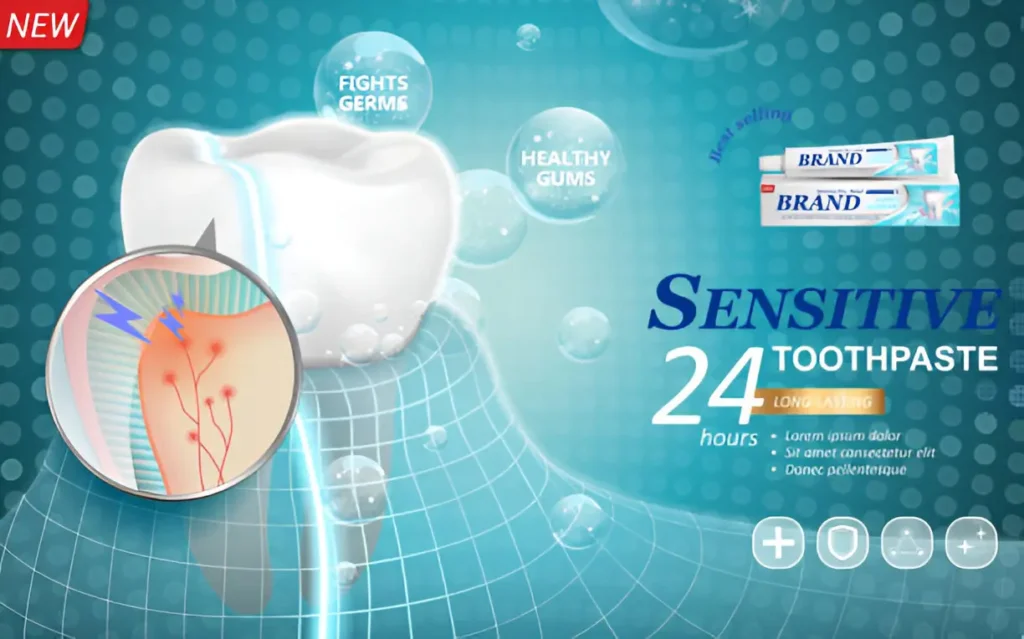If your gums often feel sore, swollen, or bleed when brushing, you’re not alone. Sensitive gums are a common oral health issue that can cause discomfort and even lead to more serious problems if left untreated. The good news? With the right care and attention, you can soothe sensitive gums and restore your oral health. Let’s explore the causes, signs, and most importantly, the best care strategies for sensitive gums.
Understanding Gum Sensitivity
Sensitive gums occur when the tissues that support your teeth become inflamed or irritated. This can be a response to a variety of factors including:
- Gum disease (gingivitis or periodontitis)
- Improper brushing or flossing technique
- Hormonal changes (especially during pregnancy or menopause)
- Tobacco use
- Vitamin deficiencies
- Poor-fitting dental appliances
- Dry mouth or certain medications
Recognizing the root cause of your gum sensitivity is the first step in addressing it properly.
Signs Your Gums Need Extra Care
You may be dealing with sensitive gums if you notice:
- Redness or swelling in the gum area
- Bleeding when brushing or flossing
- A receding gumline
- Persistent bad breath
- Pain when eating or drinking hot, cold, or spicy foods
These symptoms signal inflammation or damage, which can worsen over time if not treated. Early intervention is key.
Daily Habits for Happier, Healthier Gums
Caring for sensitive gums doesn’t require a complete overhaul of your routine—just a few mindful changes. Here’s how to start:
1. Use a Soft-Bristled Toothbrush
Hard bristles can irritate already delicate gum tissue. Switch to a soft-bristled or electric toothbrush designed for gentle cleaning. Brush in small circular motions rather than aggressive back-and-forth strokes.
2. Brush Gently and Thoroughly
Brushing twice a day for at least two minutes helps remove plaque without harming your gums. Don’t forget to brush along the gumline where bacteria often accumulate.
3. Choose a Toothpaste for Sensitive Gums
Some toothpastes are specially formulated for gum health. Look for options that contain fluoride and anti-inflammatory ingredients like stannous fluoride or aloe vera. Avoid products with strong abrasives or whitening agents that can cause irritation.
4. Floss Carefully
Flossing is essential, but be gentle. Slide the floss between your teeth without snapping it. Curve it around each tooth and move it up and down to remove debris without damaging the gums.
5. Rinse with a Soothing Mouthwash
An alcohol-free, antibacterial mouthwash can reduce plaque, fight bacteria, and calm inflamed tissues. Consider a rinse with ingredients like chamomile, aloe vera, or tea tree oil for added relief.
Diet and Lifestyle Adjustments
What you eat—and how you treat your body overall—can directly impact gum health.
1. Stay Hydrated
Dry mouth can worsen gum sensitivity. Drink plenty of water throughout the day to keep your mouth moist and help wash away food particles and bacteria.
2. Eat a Balanced Diet
Vitamins A, C, and D, along with calcium and omega-3 fatty acids, are crucial for gum health. Incorporate leafy greens, citrus fruits, nuts, dairy, and lean proteins into your meals.
3. Limit Sugary and Acidic Foods
Sugar feeds the bacteria that cause plaque buildup, while acidic foods can erode gum tissue. Try to limit sodas, candies, and citrus-heavy diets, and always rinse your mouth with water after consuming them.
4. Quit Smoking
Tobacco use significantly increases the risk of gum disease and makes healing slower. Quitting smoking is one of the best things you can do for your gums—and your overall health.
When to See a Dentist
While at-home care can greatly improve sensitive gums, it’s important to know when professional help is needed. Schedule a dental checkup if:
- Symptoms persist longer than a week
- Gums bleed heavily or often
- You notice pus, severe pain, or a bad taste in your mouth
- Teeth begin to feel loose or shift
Your dentist in Lyndhurst Ohio can perform a thorough cleaning, identify underlying issues, and suggest treatments like scaling and root planing or prescription rinses to get your gums back on track.
Final Thoughts
Sensitive gums can be a warning sign that your oral hygiene needs attention—but with consistent care, you can restore comfort and health to your smile. Focus on gentle cleaning techniques, nutrient-rich eating, and regular dental visits to prevent minor issues from becoming major problems. Remember, healthy gums are the foundation of a healthy mouth.
By making these small yet effective changes, you’re not just soothing your gums—you’re investing in a lifetime of confident, pain-free smiles.
Also Read-Tech Console DefStartup: Empowering Gaming Innovation


